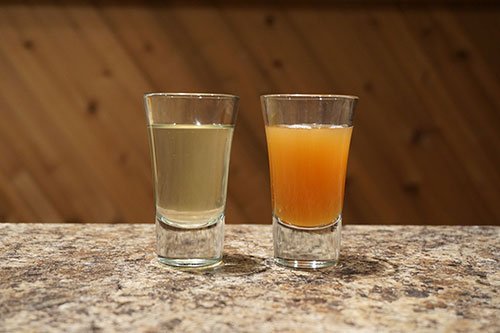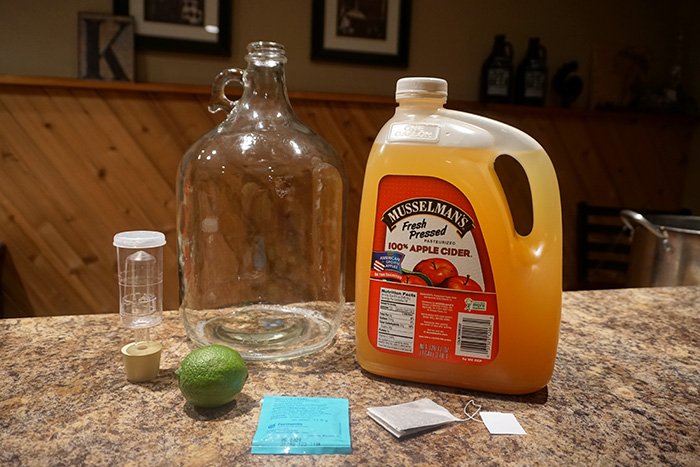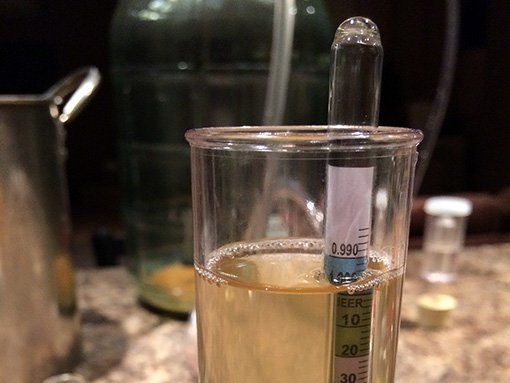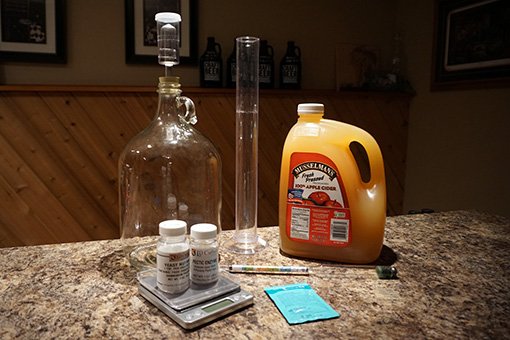Pectin is a naturally occurring substance that is found in the cell walls of many fruits, including apples. This pectin is the same organic material that gives your jam its thick consistency. While pectins make jelly an enjoyable spread, pectin makes clearing homemade cider a little tricky. This is because the naturally occurring pectins are not a particle that can be settled out with aging, it is actually bonded to the juice.

Luckily, pectic enzymes can be used to break the pectin bonds causing them to drop out of the cider. This group of enzymes includes pectolyase, ectoenzyme, and polygalacturonase.
If you have previously made a hard cider that came out clear without an addition of pectic enzymes, it is possible that you used a yeast that naturally produces pectic enzymes during fermentation or pectic enzymes were used in the juicing process.
According to this scholarly article, some yeast (Saccharomyces Cerevisiae) produce their own pectic enzymes. But, more likely than not, an addition will be necessary to produce a transparent cider.
How to Add Pectic Enzymes to Cider
Before I go too far, it’s also important to note that pectic enzymes are often used during the crushing and pressing of fresh apples while making juice. The enzymes break down the pectins before pressing which loosens the apple fibers and results in higher juice yields. This process has also been commonly used in most commercial wineries since the 1960’s.
The addition of pectic enzyme for cider making is most effective pre-fermentation as alcohol and lower temperatures can slow or halt the enzyme’s ability to effectively break the bonds. Pectic enzymes, and most enzymes in general work best when heated. While heating the cider is not mandatory, raising the temperature will speed up the reaction. The recommended temperature for pectic enzyme is between 80F to 100F but check manufacturer specifications for the brand you are using.
I add pectic enzyme to cider at the same time I add campden tablets if I am using a fresh unpasteurized cider. Since campden requires 24-36 hours before the yeast can be added, the enzymes have time to work. Although, I have read some cider makers add yeast and enzymes at the same time and still achieve good results.



My Results
The batch pictured above was the result of adding ½ teaspoon of LD Carlson Pectic Enzyme per gallon of cider pre-fermentation. The sample on the right is fresh cider and the sample on the left is the result after 3 weeks in the primary fermenter. Pectic enzymes come in different strengths as well as a powder or liquid solution, check with the manufacturer to ensure you make the right additions.
If your cider is not clearing by the end of fermentation, or you did not add any pectic enzyme before fermentation, adding an additional dose of pectic enzymes could help. But, as mentioned earlier, alcohol can reduce the effectiveness of pectic enzymes. The other option at this point, besides filtering, would be to try fining with gelatin or bentonite to clear out the suspended particles in the cider.
The good news is that pectins and the haze created by them do not affect the flavor of the cider at all. The clarity of a cider is simply a visual pleasure.




What is the risk of introducing bacteria when using pectin enzyme, and how do we mitigate it?
They’re adding it at the same time as the campden tablets, so whatever comes along with the enzymes will get killed along with everything else.
The link for “scholarly article” seems to lead to only a plant cell diagram, with pectin labeled.